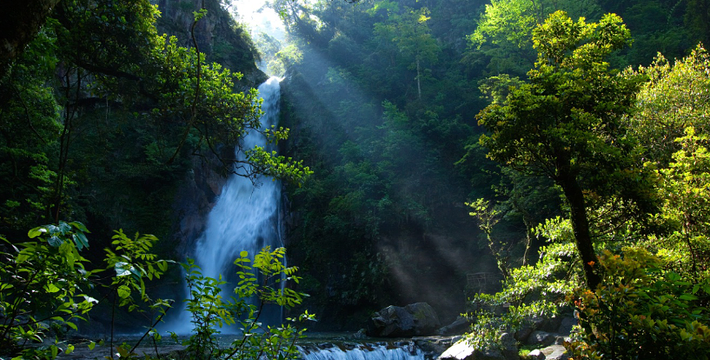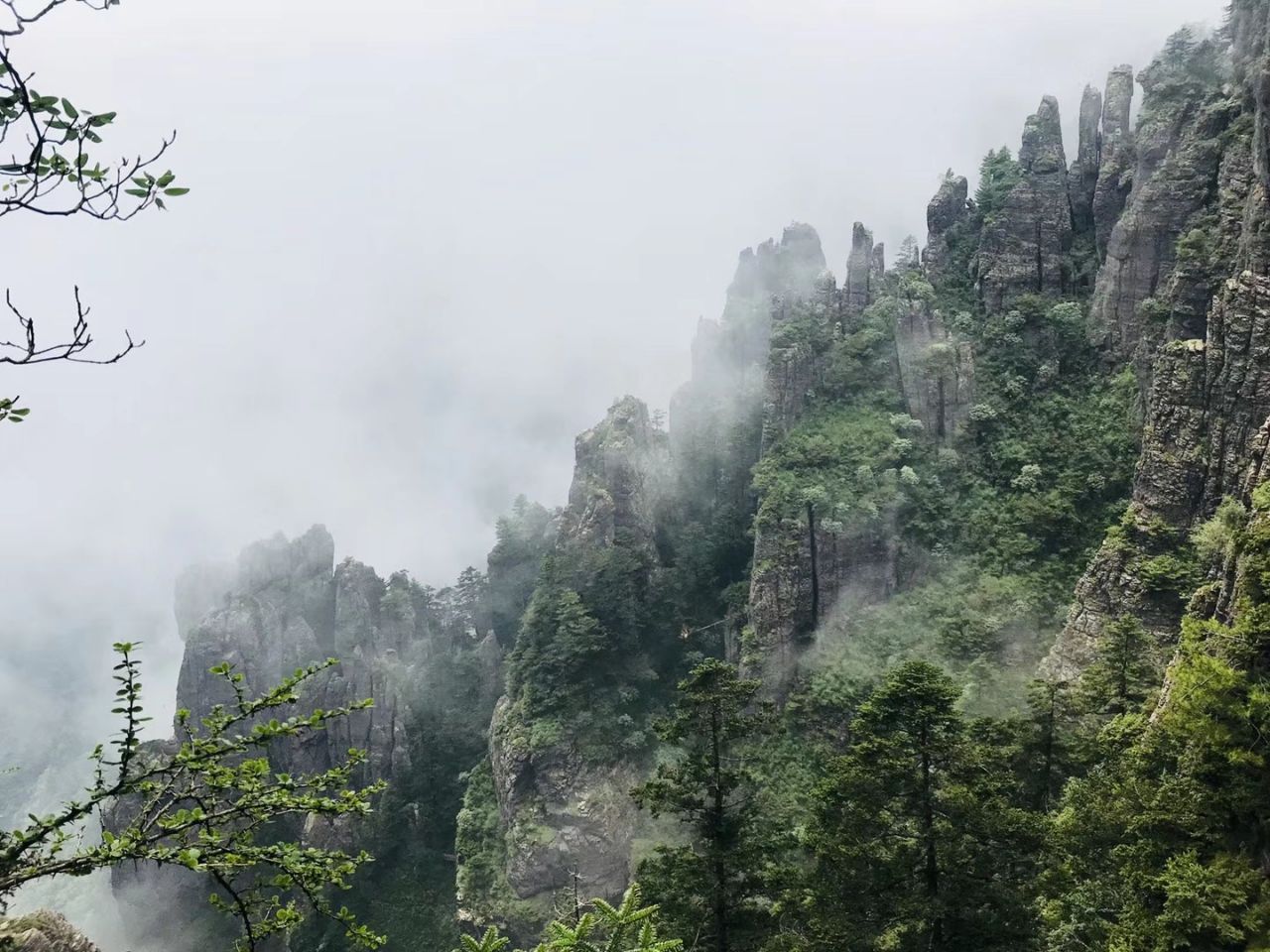Nestled in the northeastern part of Yanling County, Hunan Province, Shennong Valley National Forest Park is one of China's most breathtaking natural wonders waiting to be explored. This ecological paradise spans 10,000 hectares with elevations reaching up to 2,115.2 meters, offering visitors an unforgettable blend of majestic landscapes, rare wildlife, and cultural heritage.
Highlights of Shennong Valley
1. Pristine Natural Beauty
Shennong Valley is a masterpiece of nature, featuring:
Spectacular Waterfalls: The park boasts some of China's most stunning waterfalls, including:
Pearl Curtain Waterfall: A 41-48.2 meter cascade that resembles a delicate pearl curtain, surrounded by lush greenery. This spot holds the record for Asia's highest negative oxygen ion concentration (64,626 ions/cm³), making it a natural health retreat.
Shennong Waterfall: Plummeting 235.2 meters, this is the park's most dramatic waterfall, resembling a white silk ribbon dancing in the wind.
Dongkeng Waterfall: A three-tiered wonder dropping 170 meters, creating a thunderous spectacle in the rainy season.
Unique Geological Formations: Marvel at nature's sculptures like:
Stone Slab Beach: A riverbed covered with massive flat stones, where legend says Emperor Yan (Shennong) once washed medicinal herbs.
Lion Rock: A mountain resembling a lion playing with a "green embroidered ball" of vegetation.
Tree Embracing Stone: A centuries-old hook chestnut tree whose roots dramatically encircle a giant boulder.
2. Biodiversity Hotspot
As a vital part of the Luoxiao Mountain Range, Shennonggu serves as:
Wildlife Sanctuary: Hosts 212 terrestrial vertebrate species including clouded leopards, golden cats, and if you're extremely lucky, even the elusive South China tiger. The park is also a haven for birdwatchers with species like red-billed leiothrix and hwamei.
3. Cultural & Historical Significance
Beyond nature, Shennonggu is steeped in legend:
Named after Emperor Yan (Shennong), the mythical father of Chinese agriculture and herbal medicine, who supposedly left behind footprints, medicine-washing pools, and herb-pounding mortars in the park.
Contains historical sites like Tang Dynasty stone carvings by poet Luo Binwang who took refuge here.
4. Health Benefits
With forest coverage exceeding 90% and negative oxygen ions reaching 65,000/cm³ (compared to 1,000-2,000 in cities), the park offers:
Natural therapy for respiratory ailments
Stress relief through "forest bathing"
Best Time to Visit
Ideal Seasons:
April to November: The most comfortable period with 196 "comfortable tourism days".
Spring (April-May): Blooming azaleas paint the mountains pink and red.
Summer (June-August): Perfect escape from heat with temperatures 5-10°C cooler than lowlands.
Autumn (September-November): Crisp air and golden foliage create photographer's paradise.
Monthly Weather Guide:
| Month | Avg High (°C) | Avg Low (°C) | Precipitation |
|---|---|---|---|
| Apr | 23 | 14 | 181mm |
| May | 27 | 19 | 195mm |
| Jun | 30 | 23 | 217mm |
| Jul | 34 | 26 | 135mm |
| Aug | 33 | 25 | 133mm |
| Sep | 29 | 21 | 76mm |
| Oct | 24 | 15 | 76mm |
Data shows summer has more rainfall but also spectacular waterfall flows.
Avoid:
December-March: Some trails may close due to snow, though winter landscapes can be magical.
Heavy rain days: Mountain roads become slippery.
Travel Tips
1. Getting There
From Changsha: Drive 319 km via G4 Expressway → S21 → Yanling County (5-6 hours).
Alternative Route: Take high-speed rail to Jinggangshan (Jiangxi), then transfer to Yanling (1.5-hour drive).
Park Entrance: Located at Shiliang Township, 45 km east of Yanling.
2. Park Essentials
Opening Hours: 8:00-17:00 daily.
Entrance Fee: ¥40 (about $6), with discounts for seniors/children.
Recommended Stay: 2-3 days to explore all six scenic areas.
3. What to Bring
Sturdy hiking shoes for uneven terrain
Rain gear (sudden showers are common)
Warm layers (high-altitude areas can be chilly)
Binoculars for wildlife spotting
Portable oxygen can (for those sensitive to altitude)
4. Must-Do Experiences
Sunrise at Zhulian Waterfall for golden light on the cascades
Herbal tea tasting using local medicinal plants
Night sky observation (minimal light pollution)
Visit nearby Tiantai Mountain for panoramic views



































